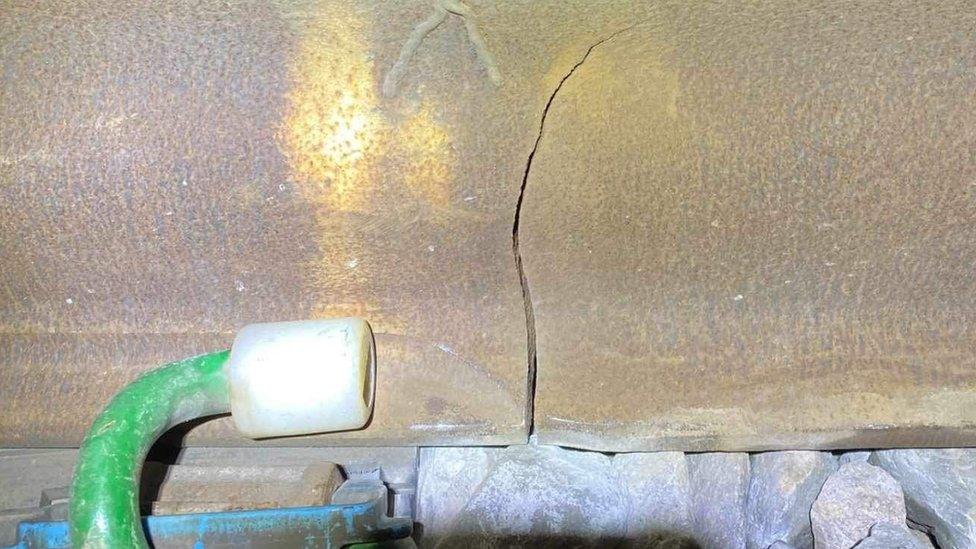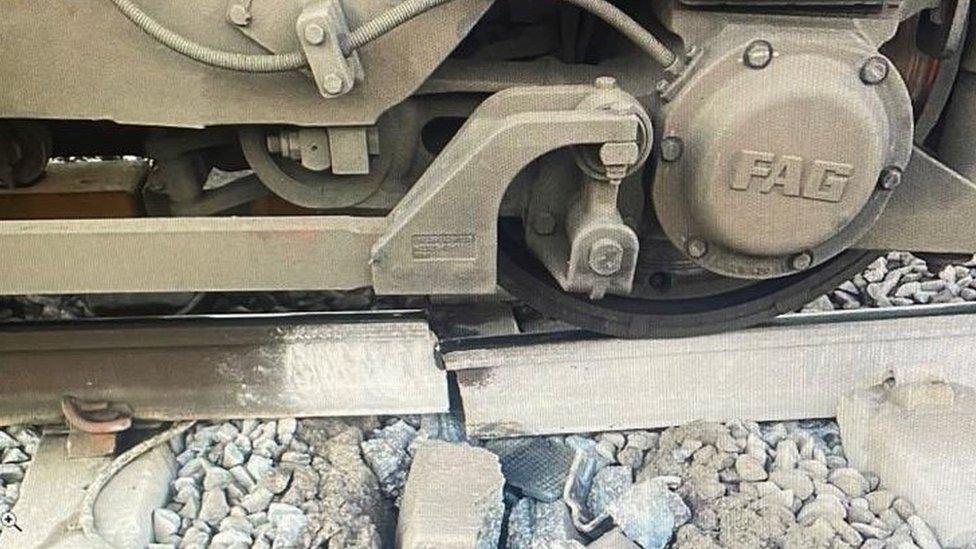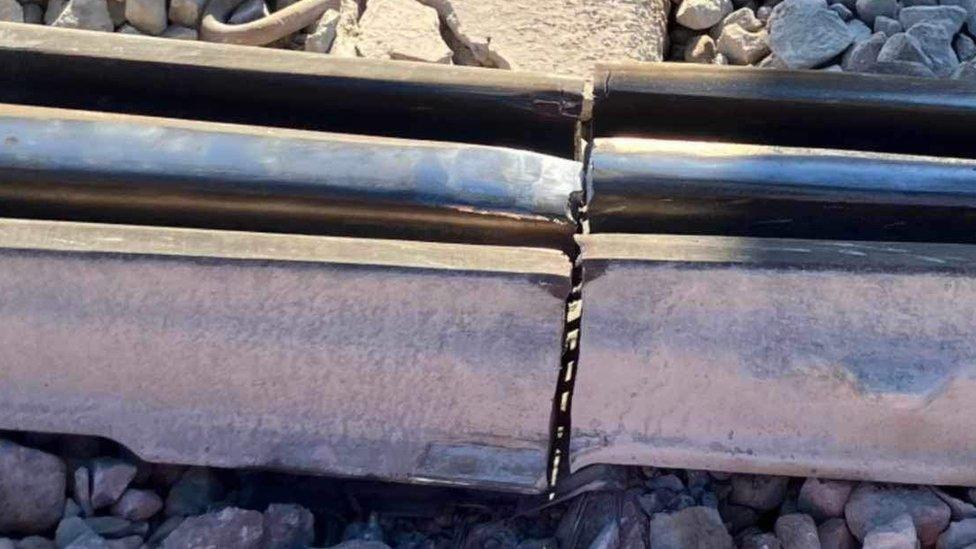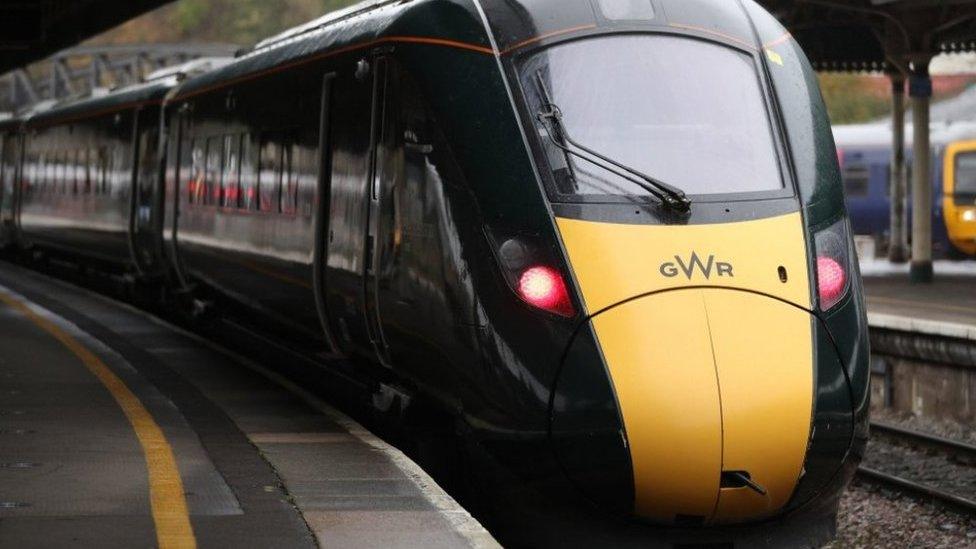Rail worker warns of 'danger to life' cracked tracks on Great Western line
- Published

Speed restrictions were put in place while workers repaired the cracked track near Slough
A railway worker has warned of a "danger to life" after cracked tracks were discovered on a heavily-used train line.
Damaged rails were found in three areas of the Great Western line in the space of one week, including in Slough.
The other cracks were discovered in Bourton, near Swindon, and Iver in Buckinghamshire.
Network Rail said investigations were under way and safety was its "highest priority".

Part of the track in Iver was completely broken, with a shattered concrete sleeper beneath
The railway worker, who the BBC is not identifying, said passenger trains would have been travelling over the cracks at about 125mph.
"This is how trains come off the rails, putting lives at risk," they said, adding: "The one at Bourton wasn't noticed until a member of the public who lives nearby noticed a change in the sound of the train."
The major route transports passengers between London and Swindon.
Network Rail said the incident in Iver had been caused by corrosion at the base of the rail.
Repairs had been carried out, with the track due for renewal at Christmas, it added.
The issue at Slough was discovered on Sunday by inspectors and was repaired the same day.

There are over 200 miles of track laid between Didcot and Paddington, according to Network Rail
But the cause of the damage found on Sunday at Bourton - between Swindon and Didcot - is still under investigation, Network Rail said.
Emergency speed restrictions were put into place each time a new crack was reported, a Network Rail spokesperson said.
"We proactively inspect all our track assets - with our measuring train scanning the track every month and teams going out to all key assets to inspect at least every 14 days," they said.
It said it would be doing additional inspections in light of the findings, but it did not believe it was a "trend problem".

Follow BBC South on Facebook, external, X, external, or Instagram, external. Send your story ideas to south.newsonline@bbc.co.uk, external.
- Published27 November 2023
